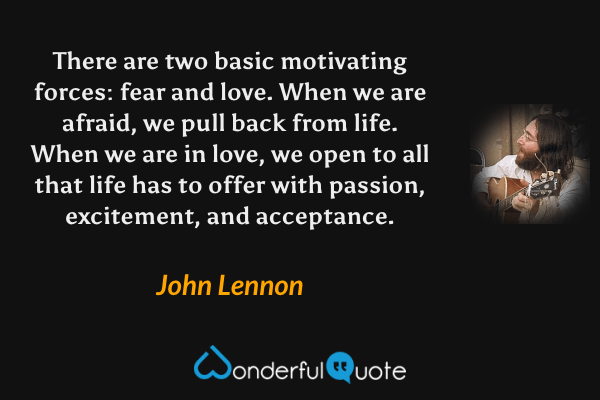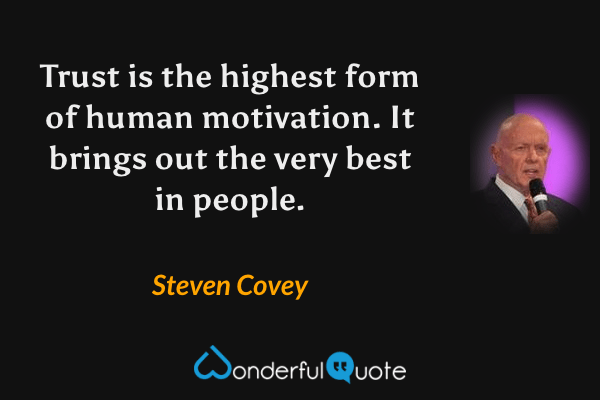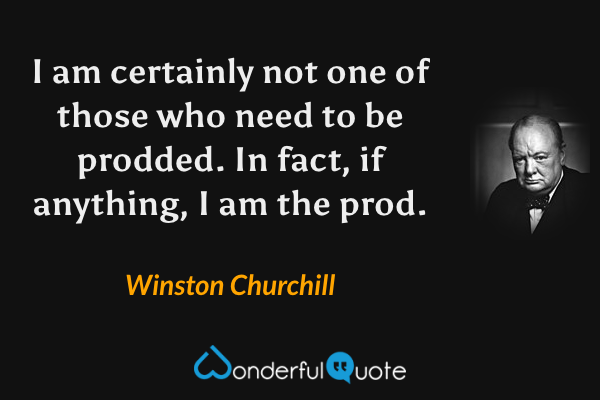Quotes about Motivation
Most popular motivation quotes
When money is used as an external reward for some activity, the subjects lose intrinsic interest for the activity.
!["When money is used as an external reward for some activity, the subjects lose intrinsic interest for the activity," he [Professor Edward Deci] wrote. Rewards can deliver a short-term boost—just as a jolt of caffeine can keep you cranking for a few more hours. But the effect wears off—and, worse, can reduce a person's longer-term motivation to continue the project. - Daniel H. Pink quote.](/img/q/10/1410A-when-money-is-used-as-an-external-reward-some-activity-daniel-h-pink.png)
"When money is used as an external reward for some activity, the subjects lose intrinsic interest for the activity," he [Professor Edward Deci] wrote. Rewards can deliver a short-term boost—just as a jolt of caffeine can keep you cranking for a few more hours. But the effect wears off—and, worse, can reduce a person's longer-term motivation to continue the project.

Only contingent rewards—if you do this, then you'll get that—had the negative effect. Why? "If-then" rewards require people to forfeit some of their autonomy.

Goals that people set for themselves and that are devoted to attaining mastery are usually healthy. But goals imposed by others—sales targets, quarterly returns, standardized test scores, and so on—can sometimes have dangerous side effects.

Goals may cause systematic problems for organizations due to narrowed focus, unethical behavior, increased risk taking, decreased cooperation, and decreased intrinsic motivation. Use care when applying goals in your organization.

The essential requirement: Any extrinsic reward should be unexpected and offered only after the task is complete.

First, consider nontangible rewards. Praise and positive feedback are much less corrosive than cash and trophies.
![SDT [Self-Determination Theory], by contrast, begins with a notion of universal human needs. It argues that we have three innate psychological needs—competence, autonomy, and relatedness. - Daniel H. Pink quote.](/img/q/16/1416A-sdt-self-determination-theory-by-contrast-begins-with-notion-universal-daniel-h-pink.png)
SDT [Self-Determination Theory], by contrast, begins with a notion of universal human needs. It argues that we have three innate psychological needs—competence, autonomy, and relatedness.

You become a narcotics addict because you do not have strong motivations in any other direction. Junk wins by default.
We are all motivated far more than we care to admit by characteristics inherited from our ancestors which individual experiences of childhood can modify, repress, or enhance, but cannot erase.

There are two basic motivating forces: fear and love. When we are afraid, we pull back from life. When we are in love, we open to all that life has to offer with passion, excitement, and acceptance.

Trust is the highest form of human motivation. It brings out the very best in people.

Motivation is a fire from within. If someone else tries to light that fire under you, chances are it will burn very briefly.

We know nothing about motivation. All we can do is write books about it.

A whole industry has grown up to promote positive thinking, and the product of this industry, available at a wide range of prices, is called "motivation."
What makes life dreary is the want of motive.

I have come to the conclusion that my subjective account of my motivation is largely mythical on almost all occasions. I don't know why I do things.
Motivation is not a thinking word; it's a feeling word.

Until we know what motivates the hearts and minds of men we can understand nothing outside ourselves, nor will we ever reach fulfillment as that greatest miracle of all, the human being.

There are only two forces that unite men—fear and interest.

Motivation is when your dreams put on work clothes.
People become motivated when you guide them to the source of their own power and when you make heroes out of employees who personify what you want to see in the organization.

Motivation is the fuel necessary to keep the human engine running.

"If a pickpocket meets a saint, he sees only his pockets." Then he'd get up and leave. Or he'd write, "If you wear shoeleather, the whole earth is covered with leather." These were his ways of teaching me about how motivation affects perception.

Every day I get up and look through the Forbes list of the richest people in America. If I'm not there, I go to work.

I am certainly not one of those who need to be prodded. In fact, if anything, I am the prod.
In everyone's life, at some time, our inner fire goes out. It is then burst into flame by an encounter with another human being. We should all be thankful for those people who rekindle the inner spirit.


